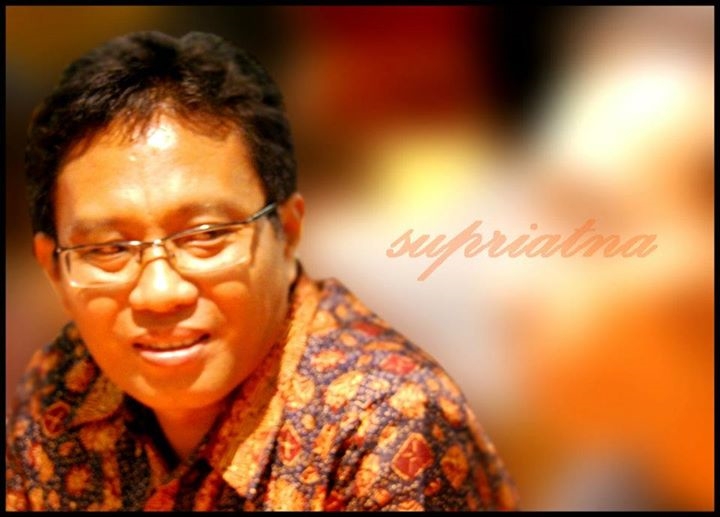
Prof. Dr. drg. Retno Widayati, Sp.Ort(K), was inaugurated as permanent professor of Orthodontic Science, Faculty of Dentistry (FKG) Universitas Indonesia (UI), this morning (Wednesday, 29/11). She was inaugurated after delivering her inaugural speech entitled “The Potential of Using Topical Medications as an Effort to Increase the Success of Future Orthodontic Treatment” at the Convention Center, UI Depok Campus.
In her study, Prof. Retno said that malocclusion needs to be treated, because apart from causing problems with chewing and speaking function, it can also cause psychosocial problems related to the sufferer’s self-confidence and can affect a person’s quality of life. She explained that malocclusion is a condition where the teeth are crowded together, buck teeth, sparse teeth, crooked teeth, teeth with an open bite, reverse bite and others.
For a long time, the general public has been familiar with orthodontic treatment, namely treatment for straightening teeth using braces or devices called fixed appliances and removable appliances. Orthodontic treatment is a type of dental treatment that requires a long treatment time, around 27.4 months. This length of time can cause other oral health problems, such as increasing the risk of caries, gingivitis, tooth root resorption, and increasing treatment costs.
Prof. Retno said that this study was carried out as an effort to shorten orthodontic treatment time. Another challenge is controlling the anchorage during treatment and maintaining the stability of the orthodontic treatment results. Several efforts have been made to speed up tooth movement, including the use of self-ligating system brackets, corticotomy surgery, and the use of lasers. However, this effort is still being debated, especially corticotomy surgery because it is an invasive procedure with limited indications.
Research shows that the use of prostaglandin E2 (PGE2) injection can trigger tooth movement 1.6 times faster, but the drawback is that it causes pain, invasiveness, and discomfort due to the use of injection needles. Therefore, the solution is to change the injection preparation into a gel form. The effect of applying PGE2 gel to the buccal mucosa of Macaca Fascicularis animals can accelerate the movement of maxillary canine teeth 1.8 times faster than without applying PGE2 gel.
Therefore, Prof. Retno said that in the future, new innovations are needed by using topical medication which has the potential to act as an accelerator (speed up) for tooth movement. Topical medications based on synthetic drugs such as PGE2 gel or gels with other raw materials, such as those based on natural ingredients, are expected to be used as orthodontic tooth movement accelerators, thus it can be a solution to speed up orthodontic treatment time.
She also mentioned that orthodontists still often experience loss of anchorage, even though they have used additional anchorage devices that are placed in the mouth. Generally, patients do not want to use additional anchorage devices because the mouth feels full and uncomfortable. In the future, it is necessary to find a solution to resolve this problem through a none additional equipment approach.
Until now, another challenge that still occurs is the stability of the results of orthodontic treatment which is not yet adequate, in terms of the high incidence of relapse. Relapse is a change in the teeth after orthodontic treatment. Relapse can occur because there are still growth factors, uncooperative use of a retainer, or other influences. Future efforts to maintain stable treatment results include using a retainer accompanied by the application of zoledronate emulgel which has the potential to inhibit tooth movement, so that alveolar bone remodeling is completed quickly, and holds the teeth in a stable position within the alveolar bone. In the future, the use of zoledronate emulgel or other medicinal emulgels which have a deceleration effect (slowing down) on tooth movement, is an effort to strengthen the anchorage and achieve stability in the results of orthodontic treatment.
Prof. Retno hopes that in the future, zoledronate emulgel can meet the requirements for new drugs, become a topical medication that has the effect of decelerating tooth movement, and can be used to strengthen orthodontic anchorage, as well as support the stability of orthodontic treatment results. SHe said that in this case, full government support is needed for innovation research through the development of science and technology, as well as development research that explores the potential of medicines and other raw materials. This research can be useful for orthodontic treatment and other dental treatments, which will have a positive impact on the health of the Indonesian people through good dental and oral health. The inauguration was led directly by UI Rector Prof. Ari Kuncoro, S.E., M.A., Ph.D., and was also attended by the Professor of FKG Gadjah Mada University, Prof. dr. H. Bambang Irawan Martohusodo, Sp.PD, Sp.JP, KKV.; Member of the Republic of Indonesia’s House of Representatives, Dr. Ir. Ongku Parmonangan Hasibuan, MM.; and Chairman of the Indonesian Orthodontic Collegium, drg. Jusuf Sjamsudin, Sp.Ort(K).
Previously, Prof. Retno has completed undergraduate to doctoral education at FKG UI, namely Bachelor of Dentistry Profession in 1990; Specialist I in Orthodontics in 2001; and Doctor of Dentistry in 2014. Apart from that, in 2003, she also succeeded in obtaining the title of Specialist II Consultant of Orthodontics in Jakarta. To date, she has also actively contributed to writing scientific papers, some of which are entitled The Potential of Zoledronate Emulsion Gel on Orthodontic Tooth Movement (2023); Class III Malocclusion Camouflage Treatment Using a Conventional Orthodontic Appliance in a Non-Growing Patient (2023); and Second molar scissor bite correction in class II malocclusion using miniscrew and cross-classic (second molar scissor bite correction) (2022).



